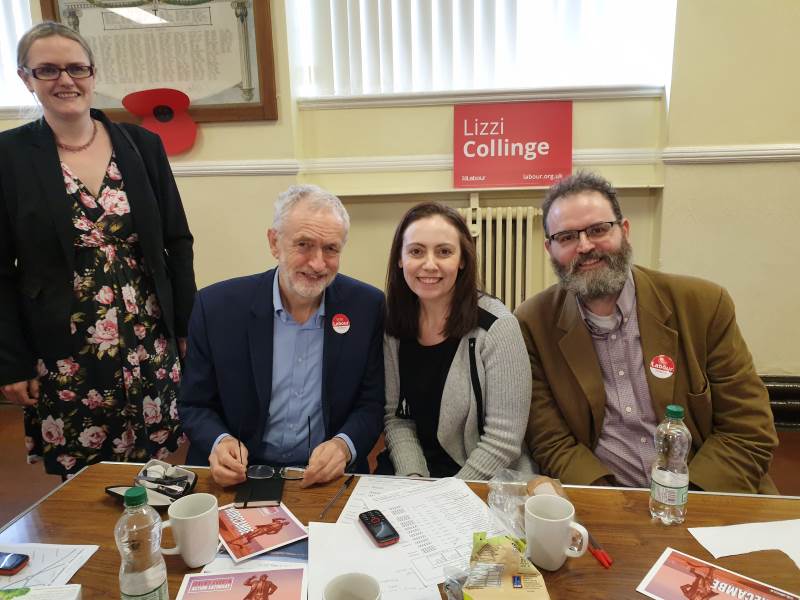
As I write this there is a general sense of panic and confusion in Westminster about Brexit. The deal presented to parliament is not what we were led to believe it would be. After 2 years of negotiation, what we have now is not a departure deal. It has been mis-sold as such, but it is merely a transition arrangement deal that only achieves one thing:
This deal is nothing but Britain recusing itself from any decisions the EU makes while Britain negotiates an actual deal with the EU. There is no actual deal yet to vote on. The real negotiations have not even started.
Last Saturday I met with Jeremy Corbyn ( that’s me on the right) and gave him this suggestion for how to resolve the Brexit deadlock:
If the EU fails to provide the UK with an acceptable deal on trade etc., then- we (the UK) require an option to get out of the backstop arrangements.
This should be where the final Brexit package negotiated (including all the international trade deals) is put it to the British public to decide in a “Breturn referendum”:
Should Britain return to the EU?
Yes / No
Voting “No” would mean accepting whatever trade deal is on offer from the EU if we stay out of the EU, or if none is on offer, then WTO terms with the EU (aka the hard Brexit) would apply.
With the backstop subject to a Breturn referendum, the deal for the transition period can be passed and a hard Brexit later on can be avoided.
The Northern Ireland border issue could also be subject to a separate referendum after this, if there is a No vote. (This might be a referendum for staying in the UK or returning to the EU as part of Ireland – in any case we can let the people of Northern Ireland decide their border arrangements.)
This suggestion has a number of things that would work:
- The EU would love a second chance to get the UK to change its mind on Brexit, so they would accept it.
- The EU could not deny the right of the British people to change treaty agreements with a referendum
- A large part of the country wants a second referendum, this holds out the possibility of such a referendum.
- This allows the negotiated transition deal to go through mostly unchanged
- This prevents a no-deal Brexit now, as most MPs want
- The government would support it because it is essentially the deal they negotiated
- David Davis likes referendums with clear consequences so he could not oppose it
- Boris Johnson wanted to leave so that we have the option to renegotiate our return if necessary, so he could not oppose it
It is important that this current deal is just a transition arrangement, what matters is the final deal, which must be for the public to confirm in a “confirmatory vote” which Jeremy has supported.
Jeremy told me, when we met, of his meeting with the Prime Minister and how she claimed that she was guaranteeing workers rights. He said, that he had pointed out that there was no such guarantee and that the conservatives were looking to roll back workers rights as soon as they had the chance. This much is true, but democracy means that whoever is voted into power can put in place whatever workers rights they want. If he becomes prime minister and he wants German style rules to put workers representatives on the boards of companies, he can do so – Tony Benn would approve. Guarantees are not democratic: if – and only if – the people want them they should have them.
For the Brexiteers keeping the option open for Britain to return to the EU will allow them to negotiate good trade deals with the US and elsewhere. It is often said that you should not enter into any negotiations without the ability to say no. We need to have the option of returning to the EU to get a good trade deal with the US and elsewhere, this Breturn referendum gives us a stronger hand when negotiating deals around the world.
Replacing the backstop with a referendum is what needs to happen to allow a vote on the actual departure deal itself whenever we get that. It is needed from all sides so that Britain can have a meaningful vote between clear options with known consequences and so that our leader(s) can enter into trade negotiations with other nations and groups of nations around the world knowing that we can eventually say no and go back into the EU.
